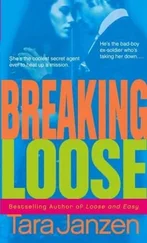Smith, James. “Popular Songs and Comic Allusion in Contemporary Cinema.” In Soundtrack Available: Essays on Film and Popular Music, edited by Pamela Robertson Wojcik and Arthur Knight. 407-430. Durham and London: Duke University Press, 2001.
Smith, Jeff. The Sounds of Commerce: Marketing Popular Film Music . New York: Columbia University Press, 1998.
The Association. “Windy.” Warner Brothers, 1967. 7041. Vinyl Single Record.
Tincknell, Estella. “The Soundtrack Movie, Nostalgia and Consumption.” In Film’s Musical Moments, edited by Ian Conrich and Estella Tincknell. 132-145. Edinburgh: Edinburgh University Press, 2006.
Tommy James and The Shondells. “Crystal Blue Persuasion.” Roulette. R 7050. Vinyl Single Record, 1969.
TV On The Radio. “DLZ.” On Dear Science . Interscope. 2008. CAD2821CD. CD.
Valenzuela Arce, José Manuel. 2002. Jefe de Jefes: Corridos y Narcocultura en México . Mexico City: Plaza y Janés.
Vernallis, Carol. “Music Video, Songs, Sound: Experience, Technique and Emotion in Eternal Sunshine of the Spotless Mind .” Screen. 49:3. (2008): 277-197.
Villalobos, José Pablo and Juan Carlos Ramírez-Pimienta. “‘Corridos’ and ‘la Pura Verdad’: Myths and Realities of the Mexican Ballad.” South Central Review . 21. (Fall 2004): 129-149.
Wald, Elijah. Narcocorrido: A Journey Into the Music of Drugs, Guns, and Guerrillas . New York: HarperCollins, 2001.
Winters, Ben. “The Non-diegetic Fallacy: Film, Music, and Narrative Space.” Music and Letters . 91:2. (2010): 224-244.
Wojcik, Pamela Robertson and Arthur Knight, Eds. Soundtrack Available: Essays on Film and Popular Music . Durham and London: Duke University Press, 2001.
Chapter 11
FEELING BAD: EMOTIONS AND NARRATIVITY IN BREAKING BAD
E. Deidre Pribram
In an interview that took place in January 1984, five months before his death, Michel Foucault relates an anecdote to illustrate what he means by ‘relations of power’:
For example, the fact that I may be older than you, and that you may initially have been intimidated, may be turned around during the course of our conversation, and I may end up being intimidated before someone precisely because he is younger than I am. (292)
His is a simple, almost offhand anecdote but one that has lingered in my mind precisely because of the inadequate means we possess to explain what occurs during this modest encounter and exchange.
In the interview, Foucault (1987) seeks to describe what he means by coercive power or states of domination versus strategies or relations of power. His interviewers remain more concerned with notions of dominance while Foucault repeatedly returns to relations of power that, for him, are both necessary to human society and quite ordinary. He acknowledges that states of domination do exist, in which power relations “are perpetually asymmetrical and allow an extremely limited margin of freedom” or strategy (292). In such situations, although the power differential cannot be reversed, certain strategies of resistance remain possible. Still, even a severely limited field of resistance constitutes the deployment of power relations.
Foucault (1987) is taking exception to the belief that his work is associated with a lack of freedom or agency, that “because power is everywhere, there is no freedom” (292). Quite the contrary, he insists, “if there are relations of power in every social field, this is because there is freedom everywhere” (291-292). Foucault is arguing that relations of power are linked with freedom and resistance, not static dominance or social paralysis. Instead, “in human relations, whether they involve verbal communication…or amorous, institutional, or economic relationships, power is always present” (291-292). Further, “these power relations are mobile, they can be modified, they are not fixed once and for all” (292). Power relations can only exist to the degree in which subjects are free and capable of some form of resistance. Without some measure to act, there would be no power relations, only powerlessness: stasis and solidification in social relations, rather than mobility and mutability.
And because such power relations appear everywhere in the social field, often occurring in minute and ordinary ways, he selects a suitably mundane anecdote as his example. His anecdote constitutes an instance of what he designates as “verbal communication” rather than amorous, institutional, or economic relations. At the outset the older participant possesses the ability to intimidate the younger. By the end, however, some modification has occurred so that the younger now intimidates the elder. In this minor event, the kind that transpires multiple times a day in every person’s life, the recalibration of a power differential, however small, has taken place.
Perhaps initially age is associated with wisdom and the older party is treated with, and expects, the power to intimidate that attaches to respect or veneration. Then, in the process of conversation, alternative implications of age are taken up. Age may emerge as the sign of generational change in which the involved parties either wish to or are forced to recognize the passing of expertise from one generation to the next. Intimidation by a younger other may be precipitated through being made aware of one’s own dwindling intellectual powers or influence. The meaning of ‘age’ modulates over the course of the conversation. Initially, the power to intimidate through age belongs to the older individual but during their discussion alternate meanings are produced and negotiated, with the result that the advantage of age—in the sense of being able to intimidate—shifts to the younger individual.
However, what Foucault fails to specify about his anecdote is that the relations of power he describes are enabled and enacted through emotions. Emotional dynamics render possible the negotiation and exchange of altered relations, in this instance whether through fear, awe, respect, sadness over diminished vigor, or other feelings entirely. Further, the emotions engaged and exchanged are quite likely different for each of the participating parties. Yet, regardless of the specific emotions put into play, they function as strategies in the circulation of power relations.
Foucault describes transactions of power relations as the ongoing set of circumstances “in which one person tries to control the conduct of the other” (292). I am suggesting a somewhat different understanding, in which such power relations refer to situations in which one person attempts to affect the conduct of others. In Foucault’s example, age is saturated with emotional meanings that become realized once they are felt. Emotions fluctuate, meanings are transmitted and accepted, rejected, or amended with the result that power differentials, however slight, become altered. The interrelationality of emotions, meaning, and power enables such routine, unceasing transactions. Emotions are strategies that allow such moves and counter-moves, negotiations and exchanges to occur. In order to elaborate on power relations as emotional strategies, I now turn from Foucault’s simple anecdote to the more complex narrative of AMC’s Breaking Bad.
I have argued elsewhere that emotional action—usually described as ‘talk’ or character interaction—constitutes a form of narrative action as significant as physical or bodily endeavor (Pribram 2011). Yet acts of physicality are normally what we refer to when we speak of filmic or televisual action.
However, emotional action, like bodily activity, shapes and propels a narrative. If we understand action as that which impels and, ultimately, resolves the narrative problems posed, then narrativity is more accurately understood as a dialectic relationship between emotional action and physical action. In these terms, a narrative becomes the accumulated effects of both forms of action. In contrast, film and television studies largely have established an erroneous dichotomy based either on emotional talk or physical action, rather than tracing the crucial relationship between them as equally productive modes of action in popular narrative forms. [1] For example, see D’Acci (1994) on the television series, Cagney and Lacey, which I discuss in Pribram, 2011, 12-16.
Читать дальше












